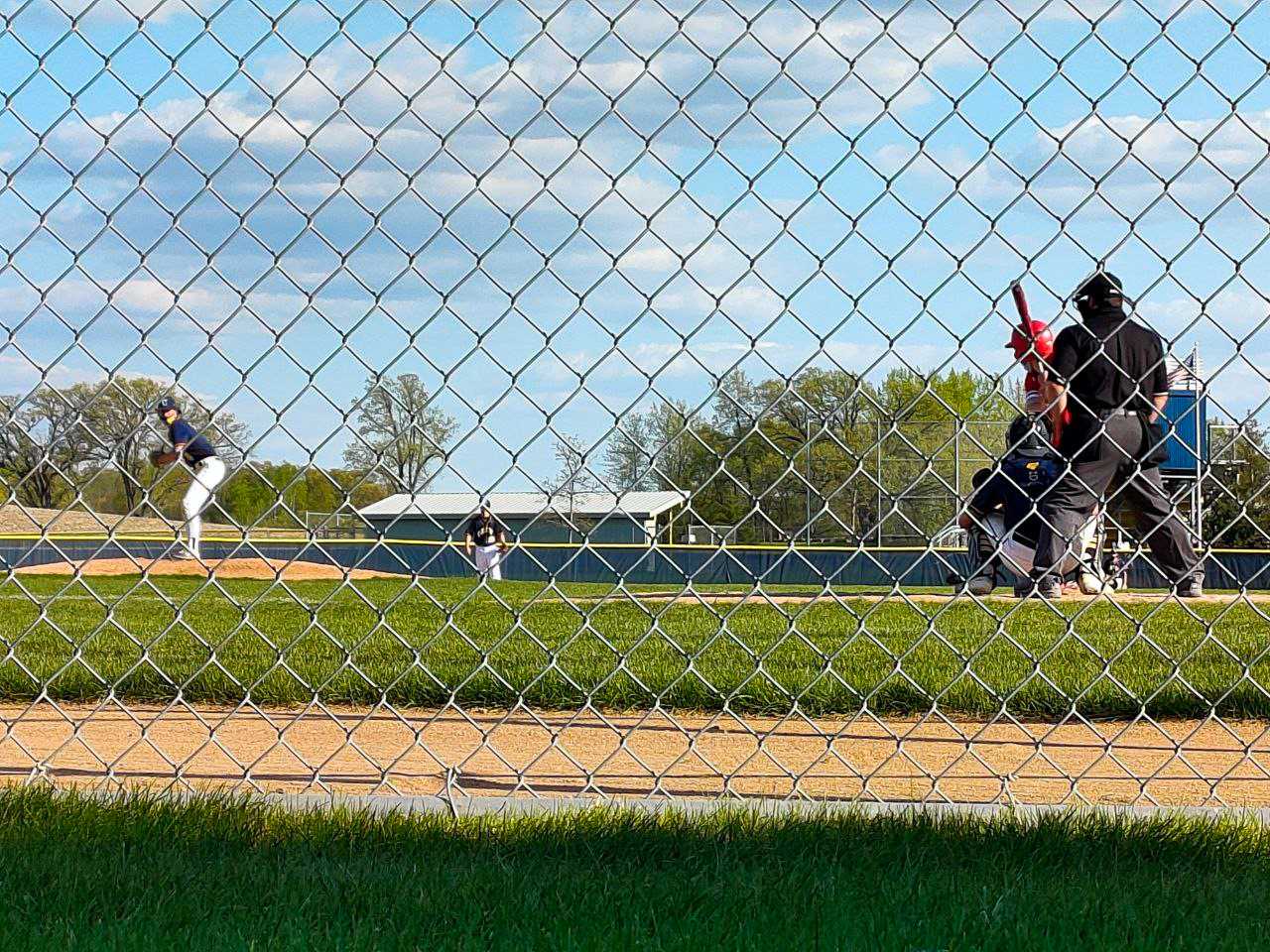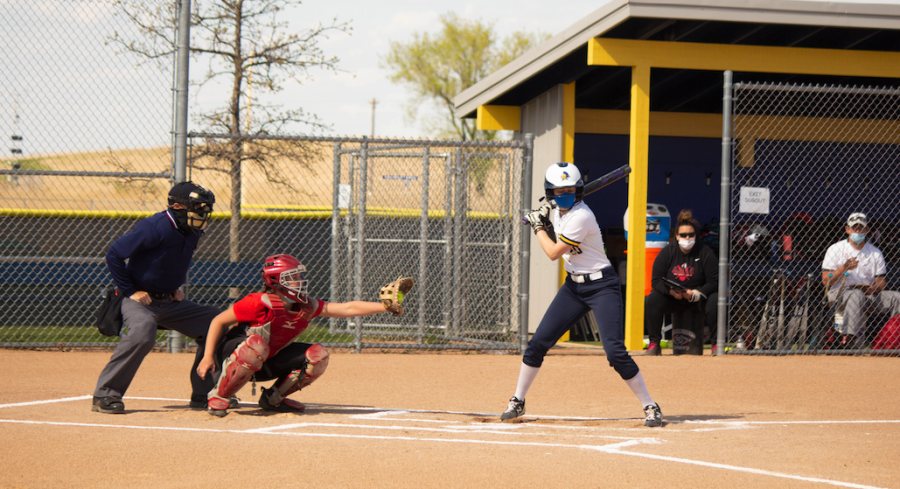Spring Term is typically defined by warm weather, cookouts, fishing, relaxed rules and, perhaps most importantly, outdoor sports. Spring sports this year spent much of the fall and winter in extreme doubt, with an intense on-campus debate culminating in a statement released by the spring sport athletes and President Steve Pozkanser’s subsequent approval and endorsement of competition this spring.
However, because of extensive COVID restrictions and considerations, spring sports this year have looked substantially different than normal, with no fans allowed in the stands, masks required on the field and travel vastly restricted. But the COVID restrictions have not dampered enthusiasm or commitment, with the student athletes soldiering ahead in classic Carleton form.
Simply by the nature of their sport and the risk of exposure, some athletes have been affected more by COVID restrictions than others. “We have to play all of our matches outside and wear a mask,” said Xander Roti ’22, a member of the Men’s tennis team. One of the main reasons Carleton’s administration approved spring sports this year was the fact that they could all be played outside, which, when combined with mask wearing, constitutes low-transmission-risk activity.
That said, wearing a mask does not come without effect. “It definitely gets in the way of my endurance during a long point,” said Roti. “In tennis, when you have a point that takes 20 strokes or higher, you are running and sprinting for a long period of time, which is more difficult with a mask.”
While mask-wearing impedes endurance in tennis, it also has an impact on other, non-cardio-intensive sports such as golf, which Women’s golfer Kristin Miyagi ’22 explained. “At first, it was challenging to golf with a mask on because the mask would move on my backswing and my hitting would be inconsistent. However, I made sure my mask was tight and bought masks that fit my face well. After getting used to golfing with a mask, it did not affect my game.”

For some athletes like baseball’s Cayten Gardner, the restrictions had little to no effect on their in-game performance. “Baseball is already socially distanced, and wearing a mask isn’t an issue,” he mentioned.
Thanks to careful planning by the school and stringent discipline by the athletes, Carleton athletes have been minimally impaired on the field, and every Carleton team has been able to complete their seasons with little interruption.
Perhaps the area to which the school invested the most time and energy into planning for a COVID-safe spring season were for practices and travel. In order to minimize the chance of transmission outside of games, larger teams have split themselves into pods of 10-12 individuals. Pods allow for any possible outbreaks to be rapidly brought under control and minimize the chance of the entire team being knocked out. For smaller teams like Men’s and Women’s golf, dividing into pods was not as necessary. However, for these teams, the challenge rested in the transportation to the Northfield Golf Club for their practices. Because teams have been restricted in their ability to share vehicles for transportation to practices, the golf team has been required to walk. “Walking to the range takes 30 minutes each way, and walking to the golf course takes 20 minutes each way, so that adds time to our practices,” said Miyagi.
Another inconvenience has been the inability of the Men’s tennis team to practice together inside during instances of inclement weather. “For indoor practices, which are normally in Cowling gym, we require a coach to be present, otherwise we are not allowed on the court,” said Roti. “And now [due to COVID-protocols], only two people are allowed on the indoor court at a time. This can be inconvenient, as there have been days where the weather wasn’t nice and our coach was unable to stay for five groups of two people to practice against each other throughout the day,” he added.
While restrictions may be cumbersome and inconvenient from time to time, they have allowed Carleton athletics teams to practice and compete this spring. Despite the restrictions, inconveniences and challenges the athletes have had to overcome this spring, the one thing they all agree on is that it has been worth it.
“I think I speak for everyone on the baseball team when I say that we are so thankful for the opportunity to compete this spring,” said Gardner, while Miyagi added that “I am very grateful for the opportunity to play golf this season, and I enjoyed playing in tournaments with my four other teammates, which was a once-in-a-lifetime experience.” The resounding success that has been Carleton spring athletics, coupled with rising vaccination rates on campus, give increasing hope and optimism for both a full fall athletic season and a return to a normal college experience in the near future.












